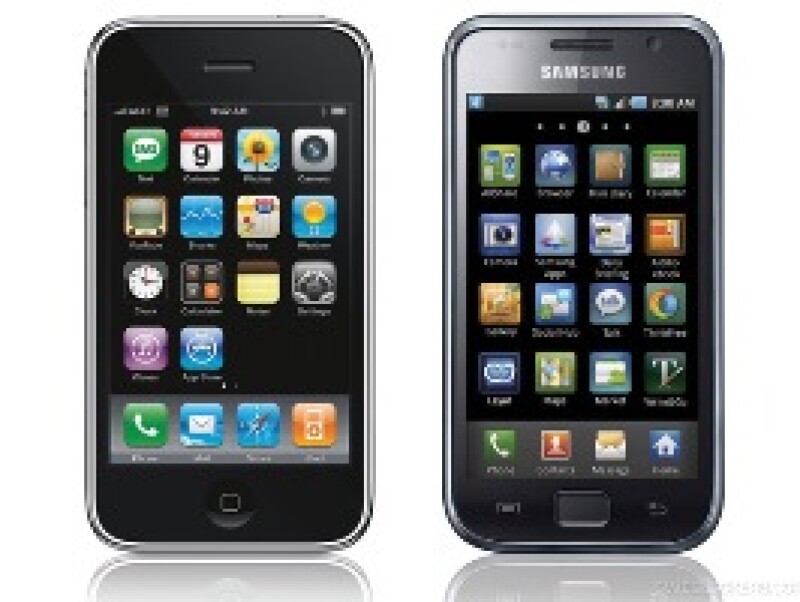
The centre of gravity of the earth-spanning patent dispute between smartphone market leaders Apple and Samsung has always been the Northern District of California, and they still seek more guidance from courts in the US, especially from the Federal Circuit. But this high-profile dispute has ended everywhere else as these companies agreed to withdraw their numerous pending lawsuits in the UK, Germany, France, Italy, Netherlands, Australia, Japan, and South Korea.
But a second-class settlement - a withdrawal of complaints and appeals without a full-fledged licence deal - is very little to show for the hundreds of millions of dollars (or euros, for that matter) the two companies have undoubtedly spent on litigating, even outside the United States. That notwithstanding, it was the rational thing to do. The companies' decision also raises some important questions about the quality of patents in general and about the strategic strength of Apple's iPhone-related patents in particular.
The origins of the litigation date back to the moment when Apple's iconic founder and then-CEO Steve Jobs considered Google's Android mobile operating system (now the leading mobile platform, for which Samsung's Android-powered gadgets are the market leaders) a "stolen product" and vowed to spend whatever necessary on a "thermonuclear [patent] war". The same Steve Jobs once also thought he could use the threat of patent litigation to deter other industry players from poaching his employees. He didn't live to see how country after country, court after court, decision after decision, his arsenal turned out to contain fireworks rather than nuclear warheads. His successor, Tim Cook, now seems to be looking for little more than a face-saving exit strategy. The ex-US ceasefire with Samsung follows a global truce with Google and Motorola.
Apple appears to have learned the lesson that you can't patent "cool" (as Samsung's lawyers accurately noted in a court filing). Nor can you patent, especially in engineering-oriented jurisdictions in Europe, what goes on in a user's mind. The reason that Apple's iPhone and iPad products made history is not primarily a story of technology, given that other smartphones, tablets and touchscreens pre-date them. Instead, Apple's success is more of a psychological accomplishment, in two respects.
Apple's psychological achievements

First, Apple came up with some pretty good user interface ideas, but these had more to do with letting users interact intuitively with a touchscreen device rather than with the underlying technology. As a case in point, the only feature Apple was able to sue out of Android is rubberbanding (the overscroll bounceback) - despite spending a fortune in the process and requiring defendants to spend a ton of money, too. Even that one feature can be implemented in a few lines of program code. Other touchscreen "inventions" fared worse. For example, 10 European judges in three countries unanimously agreed that Apple had not invented slide-to-unlock, and that whatever it had added on top of existing mechanisms just wasn't inventive.
Second, Apple's single biggest achievement was to persuade users to use portable touchscreen devices and forgo physical keyboards because the upside outweighs the downside. Other companies failed at this. Apple did it. But a change of heart on the part of users is obviously not patentable, nor does it make the great mind-changer's patents more valid or more valuable. Apple has been, and continues to be, generously rewarded for having revolutionised an entire industry - perhaps even industries. But in a technological sense, Apple was merely standing on the shoulders of giants (and in some respect on the shoulders of dwarves). That's why its patents often failed to impress the courts when viewed against the background of all of the prior art.
Psychology isn't patentable
It's not that user interface technologies aren't patentable. There are, and there always will be, valid and valuable patents in that area, provided that the claimed inventions make more efficient use of computing resources. But user interface psychology isn't patentable. That's a key lesson from Apple's failed crusade.
Psychology worked in Apple's favour at the now-legendary 2012 California trial, where it won a billion-dollar damages verdict. That was later adjusted to $929 million and is now on appeal, where it will likely be further adjusted or even vacated entirely. Apple's attorneys told a coherent story of "copying" that involved design patents (to which the bulk of the damages award related) as well as utility (technical) patents. Samsung faced a jury that, according to one juror's account, deemed it a total waste of time even to look at the prior art that could have invalidated or narrowed Apple's patents-in-suit. And it's a statistical fact that US companies have a huge home turf advantage in jury trials against foreign rivals. That said, Apple suffered a setback earlier this year when a different jury took a much more deliberate approach (though that one, too, declined to hold any of those patents invalid, including one that the USPTO has meanwhile rejected).
When this started, it looked like a dispute that could seriously impact the market shares of the two largest players in a market that is worth hundreds of billions of dollars. What's at stake now is, relatively speaking, breadcrumbs. Basically, the best Apple can hope for is that Samsung will have to pick up the bill for Apple finding out that all it owns is rubberbanding.
What now for patent reform?
The overall outcome of the smartphone patent wars, in which various other major-league litigants also had very little enforcement success, will likely be used by reform advocates as an example of a broken patent system. They are likely to claim that there's no better example of the need for fee-shifting legislation than the fact that Apple forced others to spend hundreds of millions of dollars to defend themselves, only to find out after all those years that the only feature Apple seems to own exclusively is rubberbanding.
So far, the policy debate has focused mostly on the patent troll bogeyman. However, when several large players engage in massive patent infringement campaigns and prevail on only a very small percentage of their claims, there must be some more fundamental problems to solve.
Florian Mueller blogs at www.fosspatents.com and has consulted for clients including Microsoft and Oracle. He is now developing his own apps. Managing IP included him on its list of the 50 most influential people in IP this year (the 5th time he has appeared on the annual list).










